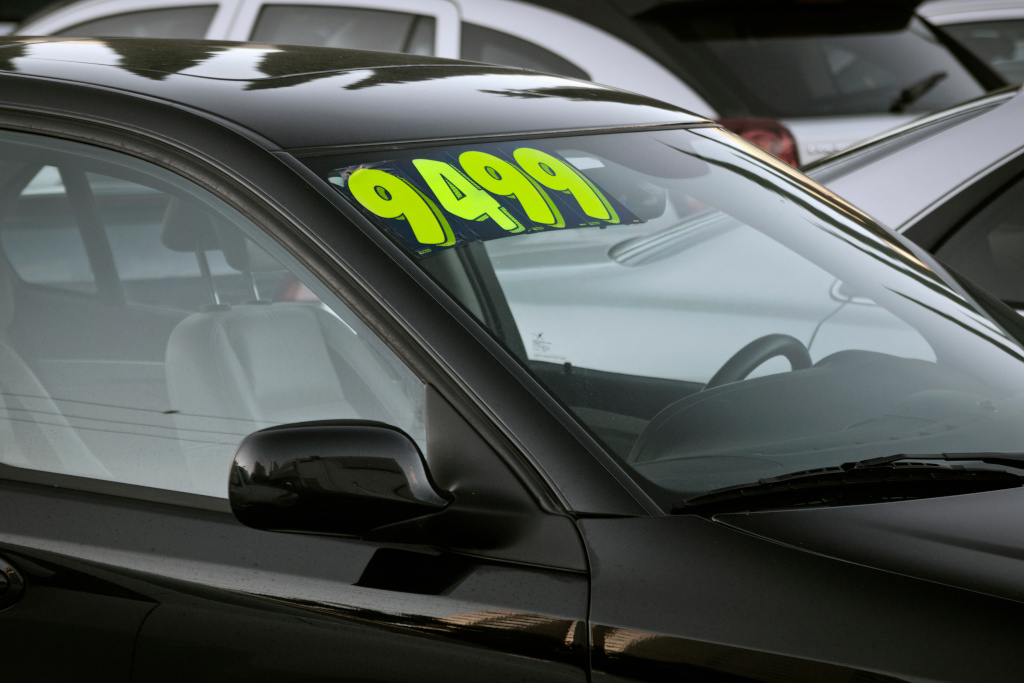Used cars are popular because they’re cheaper and easier to afford than a new one. And, generally speaking, it costs less to insure them. Even so, some situations require special considerations, especially with pre-owned classic and exotic vehicles.
In this article:
- The basics of insuring used cars
- How much coverage costs
- Fully covering pre-owned autos
- Helpful coverages for an older vehicle
- Guaranteed asset protection (Gap)
- Used cars with rebuilt titles
- Classic and Exotic vehicles
- Frequently asked questions
The Basics of Insuring Used Cars
You need auto insurance to buy a car, new or used. Without showing proof of coverage, you won’t be able to drive it off the lot. To accomplish this, you’ll need to either have your policy start on the same day as your vehicle purchase or already have one in place.
Note: if you buy from a private seller, you may not have to show proof of coverage. But, if you don’t have coverage, it’ll be illegal to drive until you do.
If you already have a policy in force, you may be able to drive the vehicle without adding it to your policy. Insurers offer grace periods for you to add a car to your plan. For example, Progressive gives its customers a 30-day grace period.
It’s a good idea to add your new car to your policy before you even leave the dealership. Your agent can help make this a seamless process. “Having an agent makes this situation more accessible. We can help you through the process. Without one, you’d need to go through an 800 number with your insurer” says Zachary Schneiderman, president of Schneiderman Insurance Agency in Granada Hills, California.
Schneiderman also says you should think about what coverages you want your newly purchased car to have. If you only have liability insurance for your previous vehicle but want collision and comprehensive protection for your new ride, you should add it ahead of time. Otherwise, you won’t have it when you drive it off the lot.
How Much Coverage Costs
Generally, older vehicles are worth less than new ones. Because of this, collision and comprehensive insurance typically don’t cost as much for used vehicles. However, this isn’t the only factor in your rates. Your vehicle’s make and model are just as important as the value. Some are safer than others, resulting in lower rates or discounts you can qualify for.
Your rates also depend on details about you, the driver. These include things you can control, like your driving record, credit history, or your home’s location. But insurers also use factors out of your hands, like your age and gender.
Fully Covering Pre-Owned Autos
It’s a good idea to fully protect any vehicle. But what about for a used one? Per Schneiderman, you should “consider the age and worth of the car,” as well as “price out the cost of collision and comprehensive coverage over the course of two years.” If the cost of the two coverages equates to buying a car of the same value, you may not want them.
Full-coverage refers to having liability, collision, and comprehensive insurance on your policy. Liability is a requirement in most states, but the other two aren’t. However, if you’re financing your vehicle, your lender will most likely require collision and comprehensive.
Just because a lender isn’t requiring you to buy full coverage doesn’t mean you should avoid it. “Collision and comprehensive are important if you’re looking to protect your asset,” says Schneiderman. In other words, full coverage is especially useful if you want to keep your car safe from disaster.
Ultimately, it’s up to you to decide whether collision and comprehensive insurance are for you. You should consider the accident and disaster risks around you. If you aren’t comfortable with the idea of losing your car or paying out of pocket for damages, it’s better to add the two coverages.
Helpful Coverages for an Older Vehicle
In general, buying a used car is no different than a new one. However, some coverages apply more to older vehicles. These include:
- Roadside assistance. Older models may be more prone to breakdowns. Roadside assistance can help get you back on the road.
- Guaranteed manufacturer/OEM parts. Depending on its age and model, you may not want cheap parts to fix your car. Specialty and high-performance models may benefit more from original manufacturer parts.
Gap Coverage
In the event of a total loss, guaranteed asset protection (Gap) insurance pays the difference between what you owe on the vehicle and its actual cash value (ACV). Even if you’re buying a used car, it may be worth it. Here’s when you may or may not want it:
When It’s Worth It
- You had a small down payment
- The car’s value is still relatively high
When It’s Not Worth It
- You have a small amount left on your loan
- You paid in cash (gap coverage wouldn’t make sense here)
- The value is low (essentially a beater)
Keep in mind that your lender may still require you to have guaranteed asset protection, no matter the payment. If you do decide to buy it, you can either get it through your car dealer or an auto insurance company. Schneiderman says he’s “seen it go both ways” in terms of which provider is cheaper. To get the best deal for gap coverage, wait and see what both your dealer and insurer are charging, then go with what works for you.
Used Cars with Rebuilt Titles
Occasionally, a used car might have a rebuilt title. A rebuilt title means it was once a total loss but has since been restored to a roadworthy condition. This is something you’ll want to know before you buy, as it can drastically affect the cost of insurance. If you’re looking to buy a vehicle on sites like Craigslist, keep an eye out for details on the vehicle’s title. When you don’t see any title info, it’s best to run for the hills, as they may be trying to hide it.
However, if you do end up with one, insuring a car with rebuilt title is usually no problem. Most insurers will, at minimum, offer liability coverage. But be aware that your rates may be higher because of the vehicle’s accident history.
Classic and Collector Vehicles
If you’re buying a rare or show car, you may not want a standard policy. These vehicles don’t go out on the road as much, so it doesn’t make sense to buy regular insurance. In this case, it’s a good idea to buy classic or collector coverage. Many of the major insurers offer this type of plan. Other specialty providers, such as Hagerty, also offer this.
Frequently Asked Questions
What kind of insurance should you get for a used car?
Insurance for used cars is the same as a new one. You can add as much or as little as you want (within the law, of course). Certain coverages especially make sense for older vehicles, such as:
- OEM parts
- Roadside assistance. If your car is prone to breakdowns, get the best roadside assistance that insurers can offer
- Collision and comprehensive (if you’re looking to fully protect the asset)
Do premiums cost more or less on a used car?
In general, coverage costs less for used cars because they’re usually not worth as much. However, the make and model can also impact your rates. How much coverage you buy is also a huge factor.
You should also keep in mind that insurers use a wide range of other factors to determine your rates. This includes things like:
- Age
- Driving record
- Gender
- Marital status
Do insurers treat used cars differently?
No, insurers don’t treat older vehicles differently. You will be able to buy all of the same coverages as a brand-new model. The only effect on your auto insurance is that your rates may raise or lower, depending on the age and/or make and model.
Can I buy a used car without a current policy?
You can buy one without insurance, but you won’t be able to take it home. Dealers require you to show valid proof of coverage to drive the car off the lot. You can either add it to your policy ahead of time or after the fact. It’s best to contact your insurer before you purchase the vehicle.
Be aware that, if you buy from a private seller, it’s illegal to drive the car until you fulfill your state’s minimum coverage requirements.
Can you get gap protection on a used car?
Absolutely. In fact, your lender may require Gap coverage as can add-on if you’re financing a used car. It’s a pretty good idea to have this kid of additional protection, even if your bank doesn’t ask you to. Long gone are the day of cheap pre-owned vehicles for a few hundred dollars. Cars retain their value much longer than they did back in the day. So, you’ll want to protect yours with as much insurance as you can.


